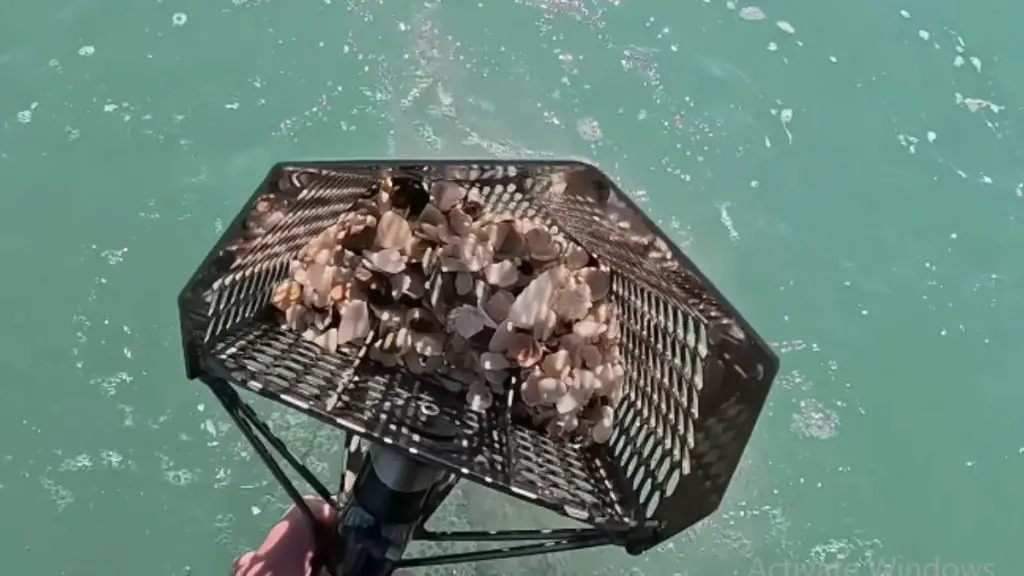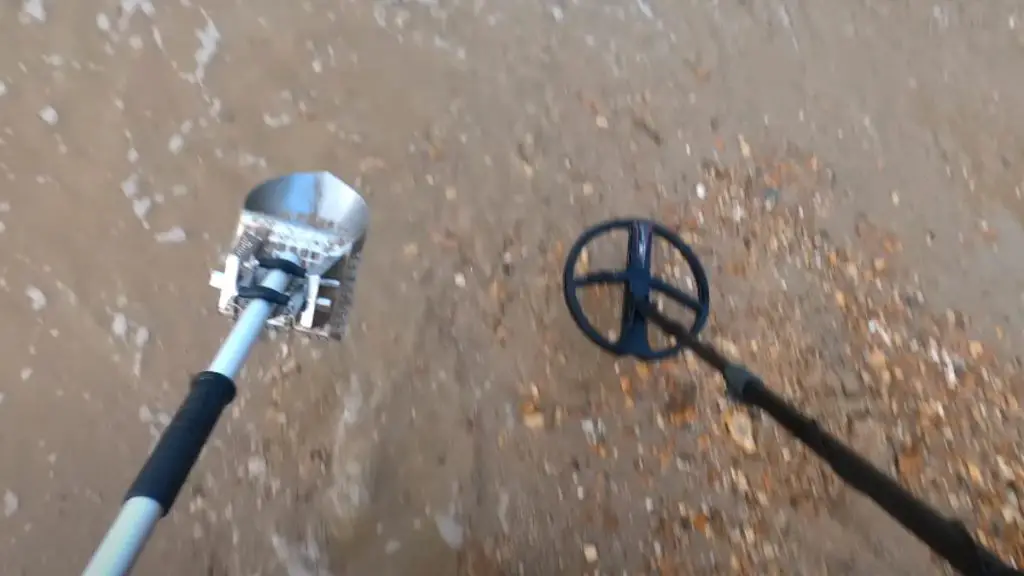Metal detecting is a fun hobby that lets people explore and discover hidden treasures under the ground.
In South Carolina, many people use metal detectors to find old coins, jewelry, and other cool things from the past.
This state has lots of history, and that means there can be many exciting finds waiting for those who go looking with their metal detectors.
So, in this guide we’ll discover the best places, clubs for metal detection in South Carolina and much more.
Let’s dive in!
Metal Detecting In South Carolina

Metal detecting in South Carolina can be an exciting adventure because of its rich history and many places to explore.
Long ago, South Carolina was home to Native American tribes, and later, it played a big part in the American Revolution and the Civil War.
Because of this long history, there might be hidden treasures waiting to be found.
Today, around 5 million people live in South Carolina, enjoying its warm weather and beautiful landscapes.
South Carolina is great for metal detecting since it has lots of old battlefields, historical homes, and beaches that could hide coins, old military buttons, or jewelry.
However, you should check the rules for metal detecting in each place, as some areas might not allow it or you may need permission.
Some of the best places in South Carolina for metal detecting are the beaches like Myrtle Beach and Hilton Head Island.
You can also visit historical towns like Charleston, where you might discover old relics from the past.
Is metal detection legal in South Carolina?
In South Carolina, metal detecting is generally legal, but there are important rules you must follow to make sure you’re not breaking any laws.
For example, metal detecting is allowed on public beaches and some state parks, but digging in historical sites or any areas that are considered archaeological sites is illegal without a proper permit.
This is to protect the historical artifacts that might be in the ground.
Before you start metal detecting, it’s a good idea to check with local authorities or park officials.
They can inform you about the specific rules in the area you want to explore.
If you want to detect on private property, you need to get permission from the property owner. Failing to do so could result in charges for trespassing.
If you find anything that looks like it could be historically important or is more than 100 years old, you need to report it to the South Carolina Institute of Archaeology and Anthropology (SCIAA).
That way, experts can study the item and learn from it. Also, fill any holes you dig and leave the environment as you found it.
Best Places for Metal Detection in South Carolina
These are the best places for metal detection in South Carolina:
1. Myrtle Beach State Park
It is ideal for finding jewelry with its extensive shoreline. And you can find jewelry, coins, and other valuables lost by beachgoers.
Detect early in the morning or evening to avoid crowds. Focus on high water marks and low areas where items accumulate.
2. South Myrtle Beach
High tourist activity increases the likelihood of finding lost items. Here you’ll find modern valuables and practice identifying tones.
You should also observe crowded areas for potential finds and practice non-intrusive digging.
3. Folly Beach
Folly beach is popular with detectorists and offers miles of beach to explore. Here you can find coins, jewelry, and possibly historical items.
However, in folly beach metal shovels are not allowed, and digging deeper than one foot is prohibited.
4. Isle of Palms
It’s a large area with less regulation on beach metal detecting. Beach-related finds similar to other coastal areas.
While going on your hunt, you should wear headphones to catch softer signals due to the noisy environment.
5. Morris Island
Historical significance from the Civil War. You might find Civil War relics. However, access might require a boat. Always cover your holes after digging.
6. Berkeley County
Why Best: Rich in Revolutionary War history.
What to Find: Artifacts from the era, possibly including coins and military items.
Tips: Much of the land is privately owned, so seek permission before detecting.
7. Hickory Grove
Why Best: Known for old gold mines and proximity to rivers.
What to Find: Gold and historical artifacts.
Tips: Public areas are your best bet; avoid trespassing on private property.
8. Chattooga Riverside
Why Best: Potential for gold finds.
What to Find: Gold and natural treasures.
Tips: Be mindful of forest land regulations; digging may be restricted.
9. King’s Mountain Belt
Why Best: Once a productive gold mining area.
What to Find: Gold and possibly historical mining artifacts.
Tips: Terrain can be challenging; start on beaches if you’re a beginner.
10. Sullivan’s Island
Why Best: Receives many visitors, increasing the chance of finds.
What to Find: Modern valuables lost by tourists.
Tips: Focus on lower areas of the beach where items are washed up.
11. Daufuskie Island
Why Best: Historical settlements and plantations.
What to Find: Artifacts from early settlements, possibly shipwreck items.
Tips: Access is primarily private; explore near the Savannah River mouth.
12. Hilton Head Beach
Why Best: Popular tourist destination.
What to Find: Coins, jewelry, and other valuables.
Tips: Long and flat, requiring extensive searching but rewarding.
13. Charleston Beach Parking Lots
Why Best: High traffic areas without the need for digging.
What to Find: Precious metals and jewelry.
Tips: Best searched in early morning or late evening.
14. Local Beaches and State Parks
Why Best: Accessible and legal for metal detecting.
What to Find: A variety of modern and possibly historical items.
Tips: Check state resources and follow all regulations.
15. Private Land
Why Best: Untapped potential for unique finds.
What to Find: Depends on the history and use of the land.
Tips: Always get permission from landowners before detecting.
Best Clubs for Metal Detection In South Carolina
Here are some of the best clubs for metal detection:
1. Low Country Metal Detecting
Low Country Metal Detecting is one of the most popular groups in South Carolina.
It provides a platform for enthusiasts to connect, share experiences, and learn from each other. Members often share tips, organize group hunts, and discuss finds.
Joining their Facebook group is a great way to get started, offering access to a wealth of knowledge and lesser-known detecting spots.
2. South Carolina Dirt Diggers
This group is another thriving community for metal detecting enthusiasts in South Carolina.
It’s an excellent resource for anyone looking to deepen their understanding of metal detecting, find companions for outings, or discover new locations to explore.
The South Carolina Dirt Diggers emphasize learning and sharing, making it a welcoming environment for newcomers to the hobby.
3. Denton’s Detectors
While primarily a store, Denton’s Detectors acts as a hub for the metal detecting community by offering equipment and valuable local knowledge on the best places to detect across South Carolina.
They can be a great starting point for anyone new to the hobby or looking to upgrade their gear, providing advice tailored to the unique conditions and history of the state.
4. Dig That Beep
Similar to Denton’s, Dig That Beep is not just a store but a community resource for metal detecting enthusiasts.
They offer both the equipment necessary to get started or advance in the hobby and insights into the metal detecting scene in South Carolina.
Top Metal Finds in South Carolina
One of the top finds is Civil War artifacts, including bullets, buttons, and other military paraphernalia.
These items are often found at former battlegrounds or encampment sites.
Moreover, old coins dating back to the 1800s can be unearthed, especially around historic homesteads or places where commerce took place.
Jewelry is another common find, which may range from gold rings to antique brooches, often discovered at beaches or old residential areas.
Lastly, relics from the colonial period, such as old tools or buckles, can be found in areas that were settled early in the state’s history.
Can you metal detect on BLM Land in South Carolina?
Absolutely, you can use a metal detector on Bureau of Land Management (BLM) land in South Carolina, but it’s very important to follow the rules.
First, you don’t need to ask for permission if you’re just looking for items like old coins or metal artifacts that are not historically important.
But, if you find anything that might be over 100 years old or could be an important piece of history, you must leave it where you found it and tell the BLM.
Also, you can’t dig in areas that are known for archaeological or historical sites without getting special permission first.
The BLM wants to ensure that important historical and natural places are protected for everyone to enjoy.
You can also find our guide on metal detection In Alabama, In Georgia, metal detection in Mississippi, and In Iowa; for successful hunt.
Is there any buried treasure in South Carolina?
The idea of buried treasure in South Carolina often brings to mind exciting stories of pirates and colonial times.
While there’s no confirmed treasure like you’d find in a pirate movie, South Carolina does have a history with pirates such as Blackbeard, who may have visited its coast.
Some people believe there could be undiscovered treasures related to piracy or hidden during various wars.
However, true treasure hunting takes a lot of research, knowledge of history, and often permission to search on private land or public areas.
If someone believes they have found treasure, they must follow the laws in South Carolina for reporting and claiming finds.
So, while there might not be treasure chests filled with gold coins buried in the ground, the real treasure might be in exploring the state’s rich history and enjoying the search!

Frederick Perez is the founder of Scrape Dude. He loves exploring and finding hidden treasures in unexpected places. Frederick has been dumpster diving and gold panning for years, turning his hobby into our website to share his adventures. He’s known for his friendly advice and exciting stories, inspiring others to discover the joy in these unique hobbies. His expertise makes Scrape Dude a trusted and fun place to learn and explore.


